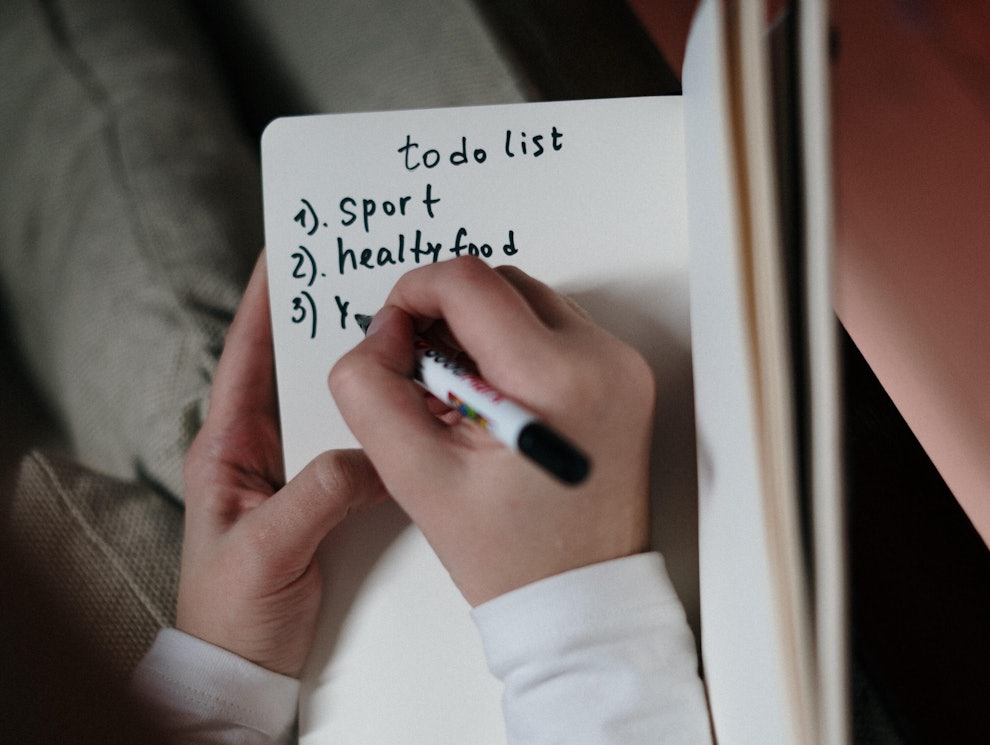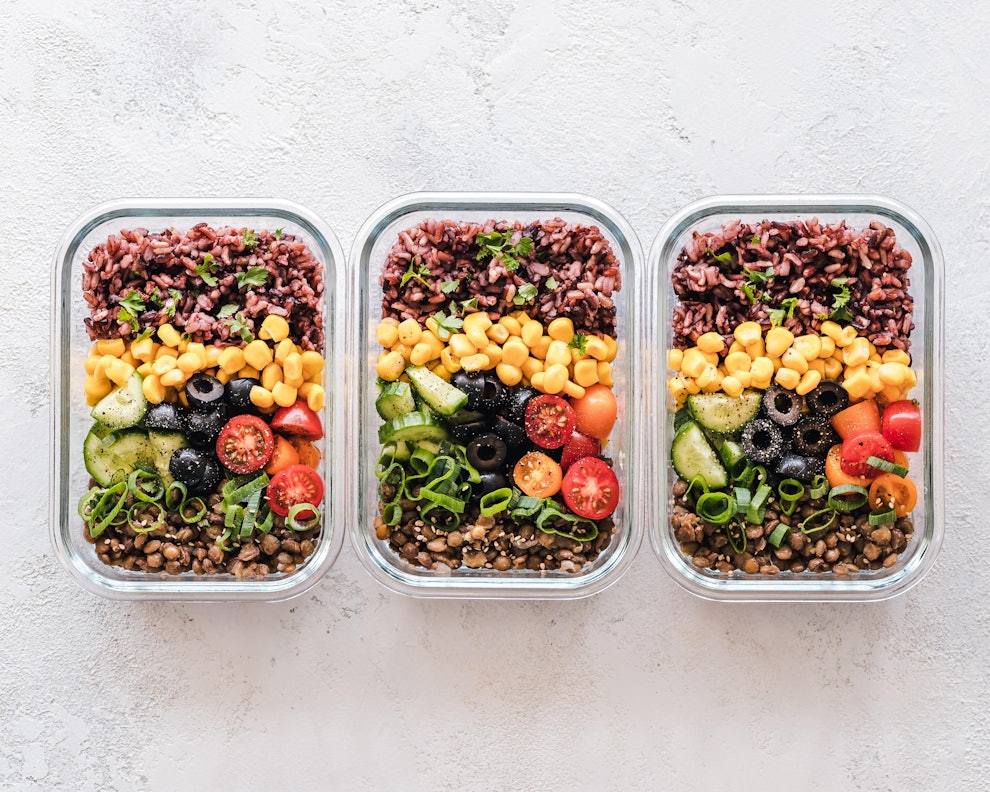
Preventive care refers to the habits and actions that we do daily that set us up to have long-lasting health. Often it encompasses preventive services within the health care industry such as routine screenings, primary care visits, staying current with vaccinations, and more. However, preventive care can be brought into one’s own hands as well and in fact, practicing preventive care strategies at home is the best way to maintain one’s overall health. Check out the tips below for ways to practice preventive care each day:

Tip #1: Improve Sleep Patterns
Not getting enough sleep can lead to a number of adverse effects such as mental fog, dizziness, reduced immune system function, and more. It’s important to note that older adults need about 7 to 9 hours of sleep each night. Here are some ways to get better rest:
Manage Stress: Having an active mind can lead to restlessness and exhaustion.
Create a Consistent Sleep Cycle: Each day, lie down at the same time and wake up at the same time to keep your body in a regular rhythm.
Create a Pre-Sleep Routine: Settling your body into wind-down mode is a great way to relax before bedtime.
Maintain a Comfortable Sleep Environment: Make sure your environment feels relaxing– not too much noise, temperature in bed is tolerable, the room is dimly lit enough, etc.
Avoid Napping: Naps are known to disrupt one’s sleep cycle and make it harder to fall asleep at night.
Avoid Caffeine & Alcohol: Caffeinated drinks like coffee, tea, or soda are known to disturb one’s sleep along with alcohol consumption.
Exercise Routinely: Being active throughout the day produces sleep-inducing chemicals that tire the body and make it easier to go to bed.
Note: To learn more about improving your nightly rest, visit this source.
Tip #2: Maintain A Good Diet
The phrase “you are what you eat,” rings true when it comes to the correlation between health and diet. In order to ensure one is intaking the proper amount of nutrients and remaining healthy, it’s key to maintain a good diet. That being said, there are a variety of diets that could suit your daily routine and it could be useful to speak with your provider to establish what foods would be healthiest for you to consume.
Read on to see more tips on maintaining a good diet and ways to stay aware of what you’re putting in your body:
Know Your Food Groups (Fruits, Vegetables, Grains, Protein, Dairy, etc.)
Pay Attention to Portion Sizes
Pay Attention to Vitamins (foods rich in vitamin D, iron, calcium, etc.)
Know Which Diets Work for You (Low-Cholesterol, Keto, Paleo, etc.)
Meal Plan in Advance
Note: To learn more about healthy eating tips for seniors, visit this source or this source.

Tip #3: Exercise Regularly
Regular exercise is proven to have a variety of health benefits such as stabilizing mental health, increased strength of bones and muscles, better sleep, and a decreased risk of disease. At a minimum, one should do moderate-intensity aerobic exercise for a total of 150 minutes each week or vigorous-intensity aerobic exercise for 75 minutes each week. In addition to cardio fitness, a patient should incorporate muscle-strengthening activities twice or more each week.
Aerobic Exercise Examples:
Walking
Running
Biking
Mowing the lawn
Swimming
Playing various sports e.g. tennis, basketball, baseball, etc.
Raking leaves
Hiking
Yoga
Muscle-Strengthening Exercise Examples:
Lifting weights
Bodyweight exercises e.g. push-ups, crunches, arm circles, etc.
Yard work e.g. shoveling, digging, etc.
Yoga
Note: For more information on the importance of regular physical activity, visit this source.

Tip #4: Pay Attention To Mental Wellness
Many aren’t aware of the impact poor mental health can have on one’s body. Stress, anxiety, and other mental wellness issues can lead to an influx of disease, restlessness, fatigue, and more. That being said, it’s important to incorporate stress relief activities into one’s daily routine, such as:
Various forms of exercise.
Connecting with loved ones.
Practicing relaxation techniques such as breathwork, working with essential oils, etc.
Working on time management throughout the day.
Maintaining a balanced, healthy lifestyle with food, sleep habits, and hygiene habits.
Journaling, reading, or discovering other forms of inspiration that incite one to keep a positive outlook.
Asking for professional help.
If you ever find yourself struggling with feelings of emptiness or loss of hope, it’s important to speak with a provider and reach out for help.
Note: For more information on the impact poor mental health has on the body, visit this source.
Here are some resources available to help anyone battling mental illness or their loved ones looking to cope:
Find a Therapist in Your Area
Call Centers
Substance Abuse and Mental Health Services Administration’s National Helpline: 1–800-662-HELP (4357)
Suicide Prevention Lifeline: 1–800-273‑8255 (TALK)
Suicide Prevention Lifeline for Hearing Impaired: 1–800-799‑4889
The Samaritans: (877) 870‑4673 (HOPE)
Trevor Project Lifeline – Hotline for LGBT youth, (866) 488‑7386
Child Help USA National Hotline – For youth who are suffering from child abuse, 1–800-4-A-CHILD (1–800-422‑4453)
Boys Town National Hotline – Serving all at-risk teens and children, (800) 448‑3000
National Teen Dating Violence Hotline – Concerns about dating relationships, 1–866-331‑9474 (or text“loveis” to 22522)
Text Hotlines
Crisis Text Line (Or, on your smartphone, text HOME to 741741)

Tip #5: Stay Up-To-Date With Home Repairs
One preventive care tip that may slip one’s mind when aging is staying on top of home repairs and modifications in order to make one’s house into an accessible living space. On top of routine fixes and maintenance, here are some ways to make a home safer while aging:
Install Grab Bars: Grab bars should be near the toilet or in the bathtub or shower.
Remove Area Rugs & Throw Rugs: This will help prevent falls. As well, ensure that carpeting is properly affixed to the floor.
Replace Handles: Swap out handles on doors or faucets with ones that are more comfortable to grab. For example, lever handles can be easier to hold.
Install a Ramp to the Front Door (If Necessary): If you have to, install a ramp instead of having stairs leading up to your home.
Ensure Home Has Adequate Lighting: Install light switches at both the top and bottom of the stairs. Don’t forget to use night lights as well. This will help prevent falls.
Use a Raised Toilet Seat: This can help make standing up from the toilet easier.
Use a Waterproof Seat in the Bath or Shower: This will also help prevent falls.
Note: For more information on home safety tips, visit this source.
As one can see, preventive care encompasses much more than routine physicals and screenings. While it is crucial to maintain a steady relationship with one’s provider, it’s also key to practice healthy habits at home to promote life longevity through holistic wellness.
Become a patient
Experience the Oak Street Health difference, and see what it’s like to be treated by a care team who are experts at caring for older adults.



